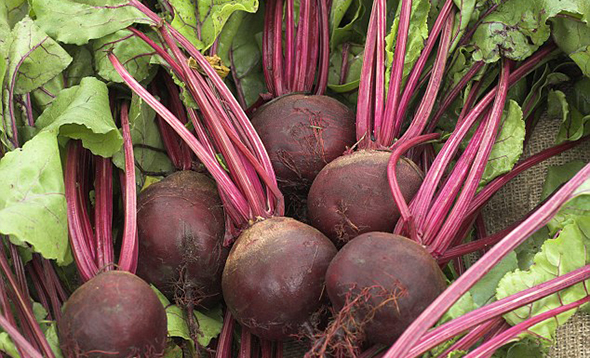That organic living is a conscious health choice
SuperFood: Beetroot
Both the leaves and root of beetroot can be eaten. The greens are rich in calcium, iron and vitamins A and C, while the roots are also an excellent source of folic acid and are rich in fibre, manganese and potassium. Historically, beetroot has been used to treat liver disorders as it helps to stimulate the liver’s detoxification processes. Nitrate rich, it may also help in heart attack survival. Furthermore, betacyanin, which gives beetroot its deep ruby hue, can potentially protect you from some types of cancer (white and golden beetroots don’t contain betacyanin). In addition to contributing towards positive bowel function, beetroot fibre increases antioxidant enzyme levels and white blood cells in the body. Beetroot is also one of the richest sources of glutamine, which is essential to intestinal tract health and maintenance.
When selecting beetroots, pick roots with greens still intact. The root should have a vibrant colour and feel firm and smooth. Store in the refrigerator. As beet juice stains, protect your countertop when you’re cutting beetroot! If you hands get stained, rubbing some lemon juice over them will help remove the colour. Small, young beetroots are lovely grated raw in salads. They’re also lovely juiced. You can eat beetroots steamed or boiled. But roasting them really brings the best out of their flavour.
Organic beetroots are available at SuperNature Forum.


























_1672804154.jpg)

_1611290459.jpg)